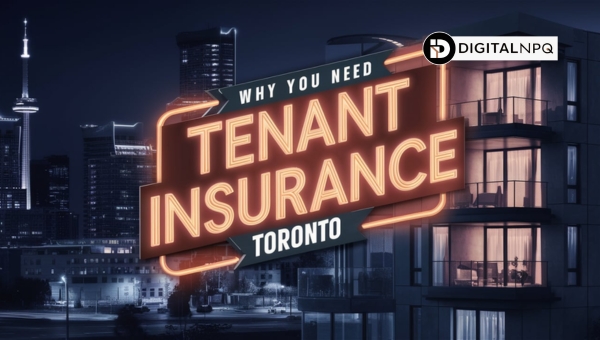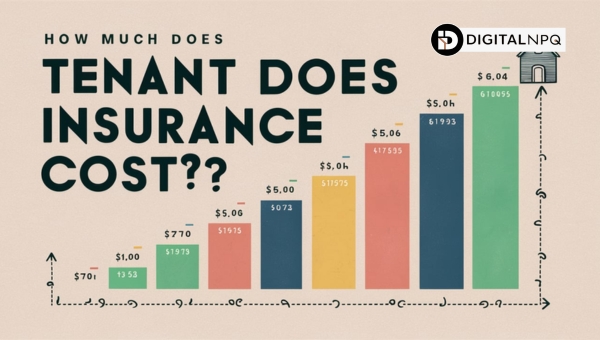Tenant Insurance Toronto: Avoid Costly Rental Disasters!

The world of tenant insurance can be daunting, especially in a bustling city like Toronto. Whether you’re a new renter or looking to upgrade your current policy, understanding tenant insurance is crucial. In this guide, we’ll delve into the basics of tenant insurance, why it’s essential in Toronto, and what it covers.
We’ll also explore the costs involved and provide tips on how to get the best quotes. By the end of this article, you’ll be well-equipped to make informed decisions about tenant insurance Toronto, ensuring your personal belongings and peace of mind are well-protected.
The Basics of Tenant Insurance
Tenant insurance, often called renters insurance, is designed to protect individuals renting a home, apartment, or condominium. It offers several key benefits:

- Personal Belongings Coverage: Protects your personal items against risks such as theft, fire, and water damage.
- Liability Protection: Offers coverage if someone is injured on your property or if you accidentally damage someone else’s property.
- Additional Living Expenses: Covers costs like hotel stays and meals if your rental becomes uninhabitable due to an insured event.
It’s essential for renters to understand these benefits to ensure they are adequately protected against unexpected events. Tenant insurance is not just a financial safeguard but also a requirement in many lease agreements.
Why You Need Tenant Insurance Toronto
Tenant insurance in Toronto is essential for several reasons. It provides comprehensive protection for your personal belongings, covers additional living expenses if you’re displaced, and offers personal liability protection. Let’s dive into each of these benefits to understand why tenant insurance is a must-have for renters in Toronto.

Protecting Your Belongings
Tenant insurance plays a crucial role in safeguarding your personal belongings. Imagine your apartment is broken into, and valuable items are stolen or damaged. Without insurance, replacing these items would come out of your pocket, which can be financially draining. Tenant insurance covers personal items such as:
- Electronics: Laptops, smartphones, and other gadgets.
- Furniture: Sofas, tables, and beds.
- Clothing: Everyday wear, as well as special occasion outfits.
This coverage ensures that you can quickly and easily replace your belongings without significant financial stress.
Covering Additional Living Expenses
If an insured event makes your rental unit uninhabitable, tenant insurance can cover additional living expenses. This is particularly important in a bustling city like Toronto, where temporary accommodation can be costly.
The insurance can help with:
- Hotel stays: Covering the cost of a hotel until your rental is habitable again.
- Meal expenses: Compensating for dining out if you can’t cook in your temporary housing.
- Relocation costs: Including transportation and storage fees for your belongings.
This ensures you maintain your standard of living even during unforeseen circumstances.
Personal Liability Protection
Tenant insurance also offers personal liability protection, which can be vital if someone is injured on your property. For instance, if a guest slips and falls in your apartment, you could be held legally responsible.
This insurance helps cover:
- Legal fees: Costs associated with defending yourself in court.
- Medical expenses: Bills for the injured person’s treatment.
- Damages: Any compensation you might need to pay if you are found liable.
This protection ensures you are not left facing hefty legal and medical bills, providing peace of mind.
How Much Does Tenant Insurance Cost?
The cost of tenant insurance in Toronto typically ranges from $20 to $35 per month, translating to an annual cost of $240 to $420 for a basic policy. However, some providers offer comprehensive coverage starting as low as $11 per month.

Factors Affecting Premiums
Several elements determine the cost of tenant insurance premiums. These factors include:
- Location: Urban areas like Toronto tend to have higher premiums due to increased risk factors such as theft.
- Coverage Amount: The more coverage you require for your belongings, the higher your premium will be.
- Building Type: The structure and age of the building can impact the cost. Older buildings or those without modern safety features may result in higher premiums.
- Claims History: If you have a history of making insurance claims, this can increase your premium.
- Deductibles: Higher deductibles typically mean lower premiums, but you will pay more out of pocket in the event of a claim.
Ways to Lower Your Insurance Costs
There are several strategies to help reduce the cost of tenant insurance without compromising on coverage:
- Bundle Policies: Combining your tenant insurance with other insurance policies, like auto insurance, can lead to discounts.
- Increase Deductibles: Opting for a higher deductible can lower your monthly premiums, though it means higher out-of-pocket costs if you file a claim.
- Safety Features: Installing safety features such as smoke detectors, burglar alarms, and deadbolts can qualify you for discounts.
- Claims-Free Discount: Maintaining a claims-free history can lead to lower premiums over time.
- Compare Quotes: Always shop around and compare quotes from different insurance providers to find the best rate.
Understanding these factors and strategies can help you make informed decisions when purchasing tenant insurance, ensuring you get the best coverage at an affordable price.
Also Read: Subaru Battery Settlement: What You Need to Know
What Does Tenant Insurance Cover?
Tenant insurance offers a range of protections that can be crucial for anyone renting a home. From safeguarding your personal belongings to covering unexpected living expenses, this type of insurance ensures you are well-protected in various scenarios.
Contents Coverage
Contents coverage is a fundamental component of tenant insurance. It protects your personal belongings within the rental unit against risks such as theft, fire, and water damage. Items typically covered include:
- Furniture: This includes couches, beds, tables, and chairs.
- Electronics: Laptops, smartphones, televisions, and other gadgets.
- Clothing: All types of garments, from casual wear to formal attire.
- Appliances: Kitchen gadgets, microwaves, and other small appliances.
With contents coverage, you can have peace of mind knowing that your valuable possessions are safeguarded against unexpected events.
Liability Coverage
Liability coverage is another critical aspect of tenant insurance. It protects you from legal claims resulting from injuries to others or damage to their property. Situations covered may include:
- Guest Injuries: If someone gets injured while visiting your rental unit, liability coverage can help pay for medical expenses and legal fees.
- Property Damage: Accidental damage to another person’s property caused by you or your family members.
- Legal Defense: Costs associated with legal defense if you are sued for an incident covered by your policy.
This coverage ensures you are not financially burdened by unforeseen legal issues.
Additional Living Expenses
Additional living expenses coverage steps in when your rental unit becomes uninhabitable due to a covered event, such as a fire. This part of the policy helps cover costs like:
- Hotel Stays: Temporary accommodation expenses.
- Meals: Costs for dining out when you cannot use your kitchen.
- Transportation: Extra travel expenses incurred during the displacement period.
This ensures that you can maintain a standard of living similar to what you are accustomed to, even during challenging times.
Exclusions to Be Aware Of
While tenant insurance covers a wide range of scenarios, there are some common exclusions you should be aware of:
- Flood Damage: Often not covered, requiring separate flood insurance.
- Earthquake Damage: Typically excluded and needs additional coverage.
- Wear and Tear: Damage due to normal use and aging of items.
- Pest Infestations: Issues like bedbugs or rodents are usually not covered.
Understanding these exclusions is essential to ensure you have comprehensive protection and can plan accordingly. Always review your policy details to be fully informed.
Also Read: EITC Refund Date 2024: Maximize Your Tax Refund
How to Get the Best Tenant Insurance Quotes?
Finding the best tenant insurance quotes in Toronto doesn’t have to be complicated. By understanding your specific insurance needs and comparing quotes from multiple providers, you can secure the most suitable coverage at an affordable price. Let’s explore these essential steps.
Understanding Your Needs
Before you start shopping for tenant insurance quotes, it’s crucial to assess your specific needs. Knowing exactly what you need will help you find a policy that provides adequate coverage without unnecessary extras.
- Evaluate Your Belongings: Make a detailed list of all your personal items and estimate their total value. This helps ensure you get enough coverage to replace your possessions in case of theft or damage.
- Determine Required Coverage: Consider the level of liability coverage you might need. This includes protection against potential legal fees if someone is injured in your rental unit.
- Assess Additional Living Expenses: Think about the potential costs you could incur if your home becomes uninhabitable due to an insured event. This will help you understand how much additional living expenses coverage you might need.
By thoroughly understanding your needs, you can avoid overpaying for coverage you don’t require and ensure you’re not underinsured.
Comparing Quotes from Multiple Providers
Once you have a clear understanding of your insurance needs, the next step is to compare quotes from multiple providers. This is crucial to finding the best policy at the most competitive price.
- Gather Multiple Quotes: Reach out to several insurance companies to get quotes. You can do this online, over the phone, or through an insurance broker.
- Compare Coverage Options: Look closely at what each policy covers. Ensure that the quotes you’re comparing offer similar levels of coverage for contents, liability, and additional living expenses.
- Check for Discounts: Some insurance providers offer discounts for bundling policies, installing security systems, or maintaining a claims-free history. Make sure to ask about any potential discounts that could lower your premium.
- Read Reviews and Ratings: Research customer reviews and ratings for each insurance company. This helps you gauge their reliability and customer service quality.
By taking the time to compare multiple quotes and carefully evaluate each option, you can find the tenant insurance policy that best meets your needs and budget.
How to Make a Tenant Insurance Claim?
Making a tenant insurance claim involves several crucial steps to ensure you receive the coverage you need.
Here’s a straightforward guide to help you navigate the process:
- Document the Damage or Loss: Take clear photos and videos of the damage or loss. List all affected items with their estimated value.
- Contact Your Insurance Provider: Notify your insurance company as soon as possible. Provide them with all necessary details about the incident.
- Fill Out Claim Forms: Complete any required claim forms thoroughly and accurately. Include all supporting documents like receipts and inventory lists.
- Follow Up: Keep in touch with your insurance agent to track the progress of your claim. Ensure you understand any additional steps needed from your side.
- Receive Settlement: Once processed, your insurance company will inform you about the settlement. Review the settlement details carefully before accepting.
By following these steps, you can streamline the claim process and ensure you get the coverage you deserve.
FAQs
What happens if you don’t have tenant insurance in Ontario?
Without tenant insurance in Ontario, you risk significant financial losses if your personal belongings are stolen or damaged. Additionally, you could be liable for any injuries that occur on your property, leading to legal expenses.
Is home insurance mandatory in Toronto?
Home insurance is not legally required in Toronto, but many landlords may require tenants to have it as part of the lease agreement. It’s a wise investment to protect your personal belongings and cover potential liabilities.
How much does tenant insurance cost in Ontario?
Tenant insurance in Ontario typically costs between $15 to $30 per month. The price depends on factors like location, coverage amount, and the type of building you live in.
Conclusion
Tenant insurance in Toronto is essential for protecting your personal belongings, covering additional living expenses, and providing personal liability protection. Understanding the costs and what the insurance covers can help you make an informed decision.
By knowing what factors affect premiums and how to lower your insurance costs, you can find the best coverage for your needs. Always compare quotes from multiple providers to get the best deal. To stay informed and make the best choices, explore more of our detailed guides and articles on our site. Your peace of mind starts with the right information!
